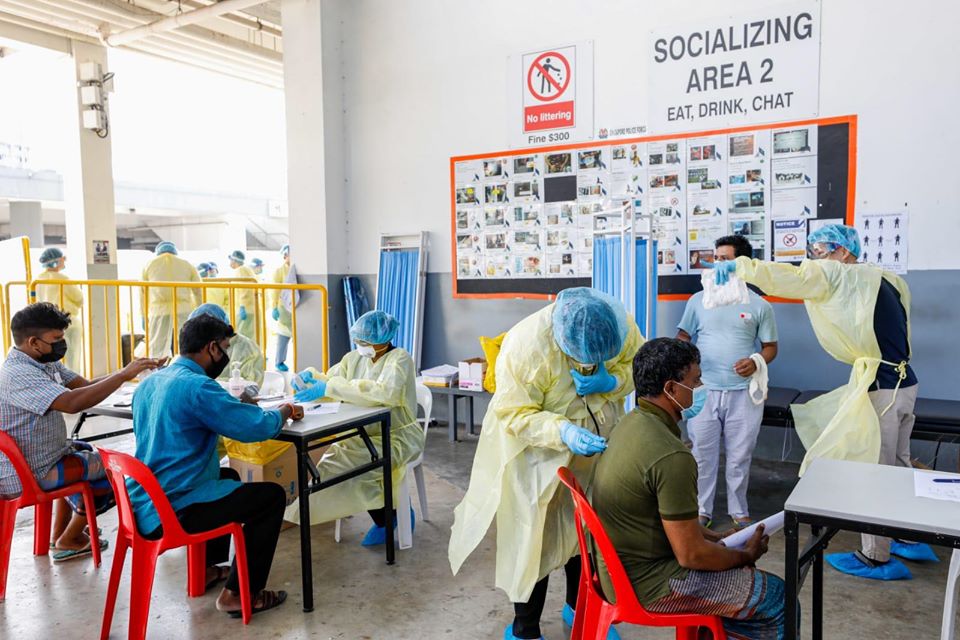The government said on Monday that it has increased testing for the novel coronavirus, especially for foreign workers living in dormitories. These foreign worker dormitories have emerged as hotspots in Singapore, with the bulk of the nearly 15,000 cases emerging amongst work pass holders.
With cases in Singapore reaching 14,951 as of April 28, the government has said that over 21,000 migrant workers, a large number of whom are from India, have been tested since the beginning of the outbreak. COVID-19 testing as a whole has been stepped up, according to a press release by the Ministry of Health.
“From an average of 2,900 tests per day in early April, we are now able to conduct more than 8,000 tests per day. To date, Singapore has tested about 2,100 per 100,000 persons. In comparison, the US has tested 1,600 per 100,000 and the UK 1,000 per 100,000,” said the ministry.
As per government data, MOH has been testing nearly 3,000 migrant workers residing at the dormitories every day.
“This means that we have tested about one in 15 workers in dormitories (or 6,500 per 100,000), far higher than the testing rates seen in countries like South Korea (one in 90, or 1,100 per 100,000),” the ministry stated.
The authorities started testing at dormitories where there were a high number of cases detected but are now also testing at other dormitories, including at factory-converted dormitories.
"We are also actively testing around confirmed cases in these dormitories, where new cases are starting to emerge in an effort to isolate cases and contain the further transmission,"said Health Minister Gan Kim Yong on Monday.
MOH also said that if any worker reports sick or shows acute respiratory infection symptoms, he is isolated and receives the necessary medical care, thus also ensuring that those with higher risk factors or those with more severe illnesses are transferred to receive care at healthcare institutions.
“One urgent priority is to test migrant workers who have moved out of the dormitories but are continuing to work in essential services. This is to reduce the risk of transmission in workplaces and to the wider community,” said the ministry.
All foreign workers in the construction sector have been placed on mandatory stay-home notices until May 4 as a precautionary measure against the spread of COVID-19.
The government has also increased testing to protect vulnerable groups. For instance, they are testing the staff at nursing homes where there is close contact with seniors, as well as healthcare workers and frontline officers who have regular contact with confirmed cases.
“As more testing capacity is brought on-stream, we will gradually expand testing to the wider pool of workers in order to ensure the continuity of critical functions and services. This is important, as it will also enable us to progressively resume economic activities beyond the circuit breaker period,” said the ministry release.
Singapore has extended its "circuit breaker" period till June 1 to stem the spread of the disease.



